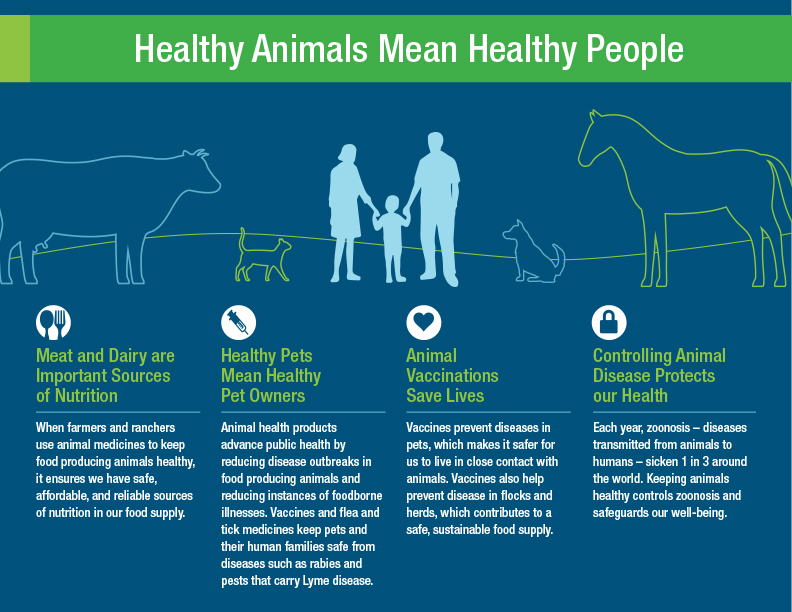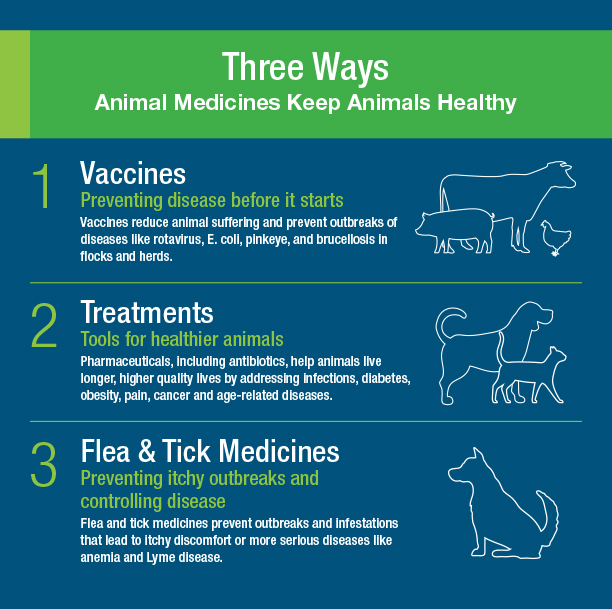Vaccines
Vaccines are one of the top tools for keeping animals healthy. Inoculating animals with vaccines protects them from needing later treatment, which reduces animal suffering and losses. These medicines are a safe, proven way to protect animals from diseases like rabies, parvovirus, and E. coli. In turn, this helps protect public health – fewer sick animals and disease outbreaks means a reduced chance of transmitting illnesses from animals to people.
New vaccines and delivery methods are on the horizon, promising opportunities to prevent more disease and protect more animals, such as mRNA vaccines.
Pharmaceuticals
Veterinarian tools for healthier animals
Pharmaceuticals help animals live longer, higher-quality lives by addressing infections, diabetes, obesity, pain, cancer and age-related diseases. Just as humans rely on doctors to diagnose ailments and prescribe treatments, animals need veterinarians to manage many types of pharmaceutical treatments.
Pharmaceuticals include anti-inflammatory medications, anesthetics, pain medications, antibiotics, and specialized products for managing reproductive, cardiovascular, or metabolic conditions. To ensure effective and safe administration of animal pharmaceuticals, veterinarians and owners have a wide variety of options, including pills, liquids, injections, powders, feed additives, and boluses.
Animal pharmaceuticals are regulated by the FDA’s Center for Veterinary Medicine.
Protecting Animal Health and Protecting Human Health – 2014
Dr. Lisa Gibson; addresses pet health, many treatment tools available to veterinarians, and connection between pet and owners (2016)
Flea and Tick Medicines
Preventing itchy outbreaks and serious disease
Most pet owners use pet medicines to prevent parasites such as fleas and ticks (external parasites) and heartworms (intestinal parasites). Pet medicines prevent outbreaks and infestations that lead to itchy discomfort or more serious diseases like anemia and Lyme disease. Animal owners administer these medicines through pills, medicated collars, spray dips, shampoos, powders, and “spot-on” liquid repellents. This makes it safer for pets to live inside our home, which is especially important in dense areas where animal illnesses can quickly spread.
Treatments for external parasites are considered pesticides, which are regulated by the U.S. Environmental Protection Agency (EPA). Treatments for intestinal parasites are regulated by the U.S. Food and Drug Administration (FDA). The EPA and the FDA work together to ensure these treatments are safe and effective.



